The Protection of the Most Holy Theotokos ( 14.10.2007 )
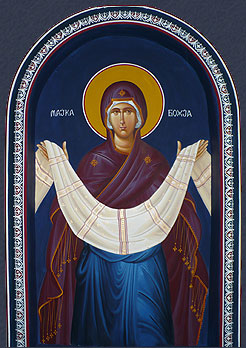 Today, on the feast of the Protection of the Most Holy Theotokos and on the occasion of 40 years of autocephaly of the Macedonian Orthodox Church, Metropolitan Nahum of Strumica consecrated the church in Vodoča monastery to the Protection of the Most Holy Theotokos, and afterwards celebrated Divine Liturgy.
Today, on the feast of the Protection of the Most Holy Theotokos and on the occasion of 40 years of autocephaly of the Macedonian Orthodox Church, Metropolitan Nahum of Strumica consecrated the church in Vodoča monastery to the Protection of the Most Holy Theotokos, and afterwards celebrated Divine Liturgy.
The fresco has been executed by the icon-painting school
at Veljusa monastery of the Entry of
the Most Holy Theotokos Eleusa into the
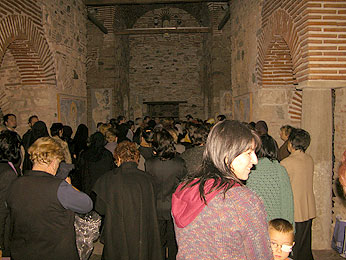
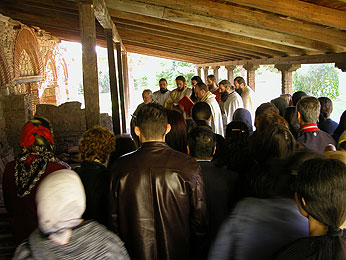
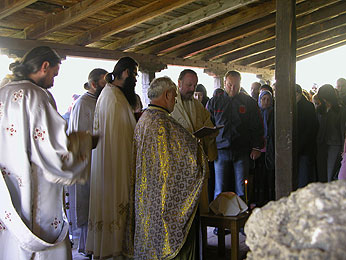
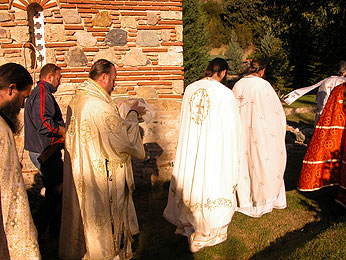
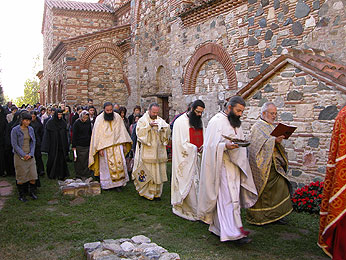
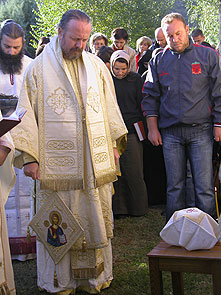
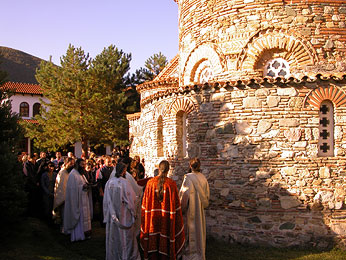
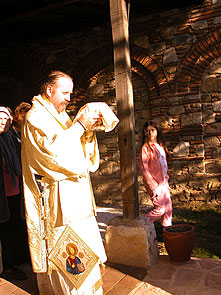
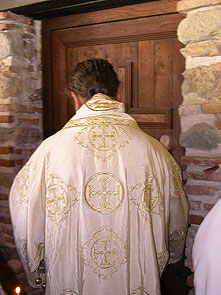
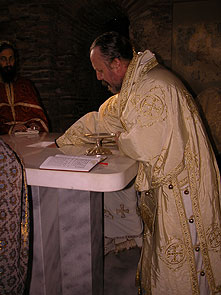
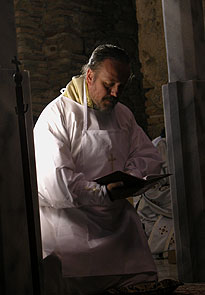
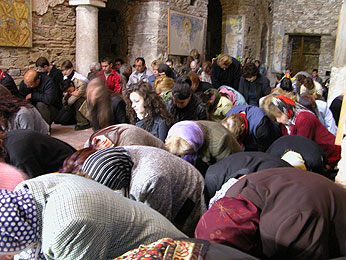
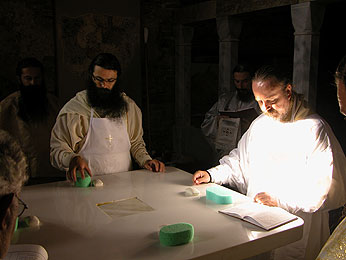
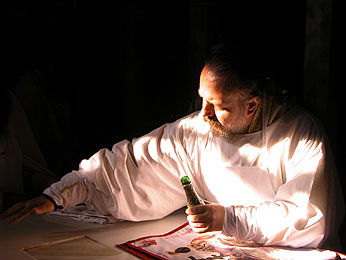
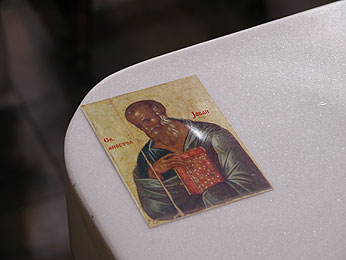
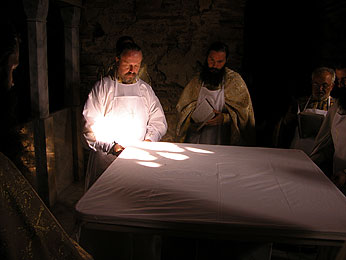
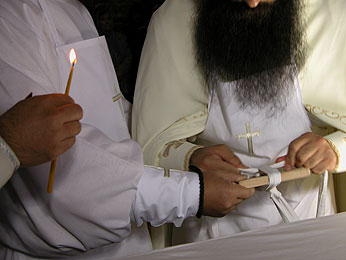
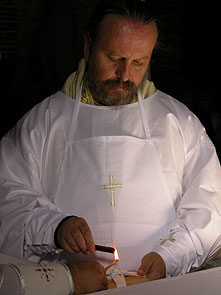
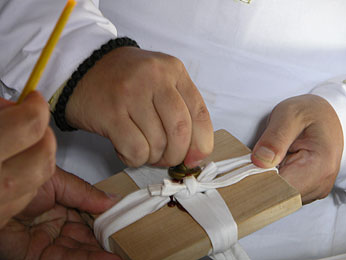
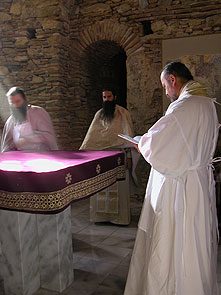
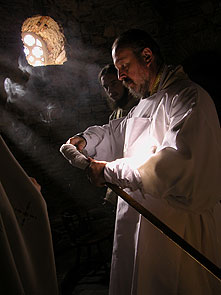
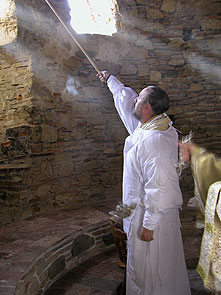
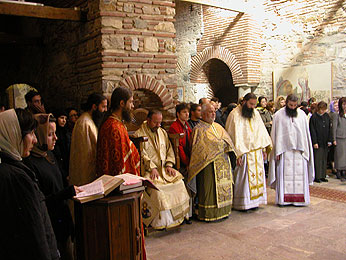
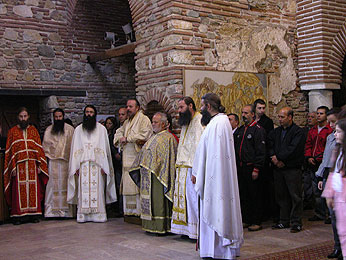
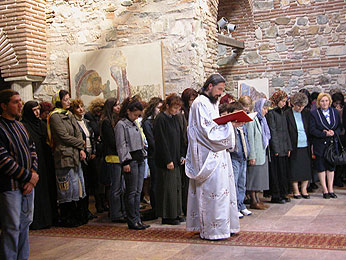
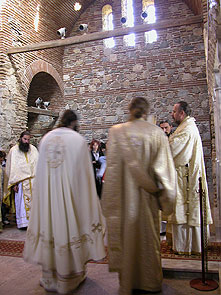
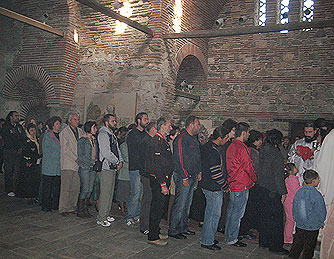
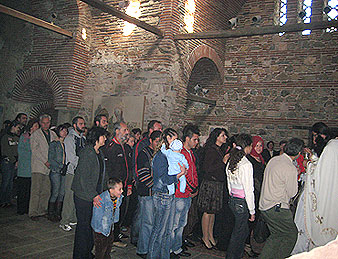
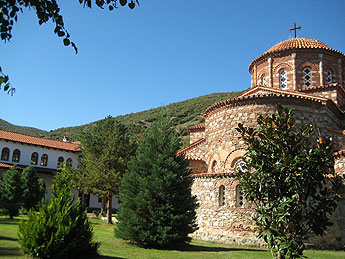
Interpreting the Gospel reading of the day, His Eminence said:
“My beloved spiritual children in the Lord,
I have interpreted on other occasions before most of you today’s gospel reading. Now as well I would like us to recall together that Martha symbolizes and portrays the first stage of spiritual growth, and that, as you know, is the purification of the heart from passions i.e. the practical struggle; whereas, Mary represents the higher stage of spiritual growth – mind-and-heart prayer and illumination of the mind i.e. theoria or contemplation.
This time I would like to draw your attention to another very important moment in this incident: The one who is on the stage of purification cannot possibly know the spiritual experience of him who is at the stage of illumination. He may be interested in it and read (which is necessary), and he may also assume and speculate (which is dangerous), but he cannot possibly know. Therefore such people, if they unwisely try to talk or interpret something about the spiritual experience of the higher stage, can quite easily err. It happens they to disagree even with what the Holy Fathers have left us as a legacy, which is rather bad. Yet, how should they act in order not to stray from the road?
It is exactly what I wanted to explain to you with Martha’s example. You see, Martha does not understand what Mary is doing, still, she is not trying to interpret what is happening nor is she going to Martha to argue with her directly (because love does not allow this), but much properly she goes straight to the Spring of all knowledge, our Lord, the Godman Jesus Christ, and says, “Lord, do You not care that my sister has left me to serve alone? Therefore tell her to help me” (Luke 10:40). Certainly, we know very well the answer, directed with compassion and reprimand to all of us, although in our life we rather neglect it: “Martha, Martha, you are worried and troubled about many things. But one thing is needed, and Mary has chosen that good part, which will not be taken away from her” (Luke 10:41-42). Can each one of us answer oneself the question, how much time during the 24 daily hours does he/she dedicate to the personal-catholic prayer in solitude? Then, how much, during these supposed ten minutes of prayer, is our mind collected in the prayer words? We deceive ourselves if the answer is positive, is not it so?
Therefore, what moral can we draw from Martha’s behavior? We must not be puffed up by our fleshly i.e. proud, distracted, and darkened mind, and interpret things which are not familiar to us from our personal experience. Then, we must always humble ourselves before what the Holy Fathers say out of experience. Finally, we must always keep in touch with our spiritual father and ask him about what we are not sure from what we have read, heard, or thought.
As for the spiritual father, how should he act? This I have read in some of the last century Hagiorite Elders. He explains how spiritual fathers should act when asked about the mind-and-heart prayer: If they have the experience, they should lead their spiritual children along the way of purification from the passions towards the revelation of the place of the heart or God’s gift of uniting of the mind and the heart; if, though, they do not have the experience, they should humbly admit that, rather than talk all sorts of things against the very practice of prayer in the heart or against the bearers of this gift. Every tree can be recognized by its fruit…”